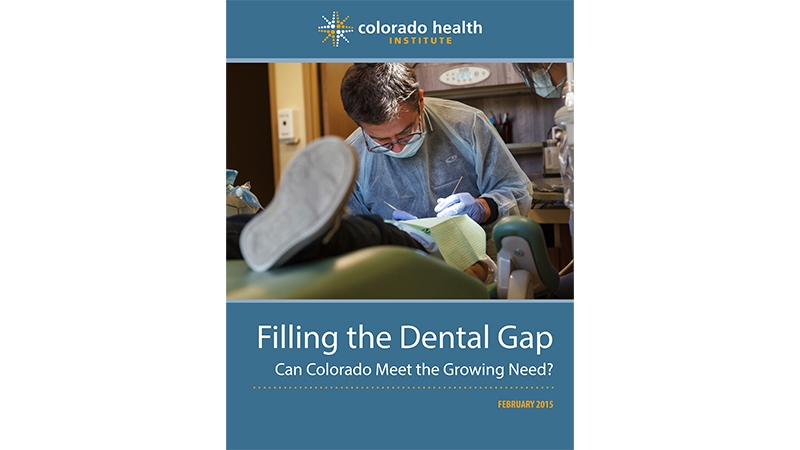New Solutions for Colorado’s Dental Desert

By Deborah Foote
A recent Colorado Health Institute report, highlighted on Colorado Public Radio, cited a record-increase in the number of Colorado residents who have dental coverage under Medicaid, and the lack of provider access to meet their dental needs.
With 1.1 million people now covered for dental care under Medicaid, it’s apt to say that the temperature of Colorado’s “dental desert” has been heating up over the last few years. While access to dental providers in rural and low-income areas of Colorado may be limited today, oral health advocates in Colorado have been working hard towards solutions that continue to address oral health equity by working to create access to dental care throughout the state.
There are a number of exciting initiatives recently launched by Colorado’s oral health funders and partners aimed at expanding access to dental care. Delta Dental of Colorado Foundation has launched the Colorado Medical-Dental Integration Project, which aims to reduce the access gap by integrating dental hygienists in primary care clinics to provide preventive dental care to children. The dental hygienist will be a part of the care team in 17 such clinics statewide.
Caring for Colorado Foundation is working to improve access to dental care for underserved children and seniors through a new program called SMILES Dental Home (Spanning Miles in Linking Everyone to Services). The SMILES project will deploy registered dental hygienists into community settings such as schools, Head Start Centers, assisted-living sites, senior centers and residential and day programs for people with disabilities to provide dental care in the community. The community setting will serve as the dental home where people receive their routine, preventive dental care. Those with treatment needs will be linked to a dental office for care. The program is designed to address barriers to care such as transportation, cost, mobility, language, and a lack of providers in rural and low-income communities. Caring for Colorado will fund regions of the state to pilot the SMILES Project starting in 2015.
Additionally, the Colorado Dental Association’s Community Dental Health Program is working to partner with interested rural and underserved communities to open new dental facilities in these areas. This initiative is another extension of the hub-and-spokes model, but focuses on connecting dentists who can provide restorative treatment with communities in need. Programs that focus on both preventive care and the full range of dental treatments are vital to addressing our communities’ needs.
Beyond just expanding access to current Medicaid providers, Colorado needs more dental professionals to serve these clients. The State of Colorado, DentaQuest (the Medicaid dental benefit administrator) and the Colorado Dental Association’s Take 5 initiative are all engaged in recruiting dental providers to the Medicaid program. The recent Colorado Health Institute report noted a 17 percent jump in Medicaid dental providers. More notable, the Colorado Medicaid program recently noted a 28 percent increase in dentists who see more than 30 Medicaid patients in their practice.
The Colorado legislature and governor also have increased Medicaid dental rates in recent years, and another targeted rate increase is making its way through the legislature. Legislation was passed in 2014 to provide financial incentives for dentists to treat more Medicaid enrollees, and we await federal approval to implement.
We are not there yet, but it does appear a cool-down is coming to our state’s dental desert. These important initiatives help create more provider access, bringing us closer to our goal to eradicate dental disease in Colorado.